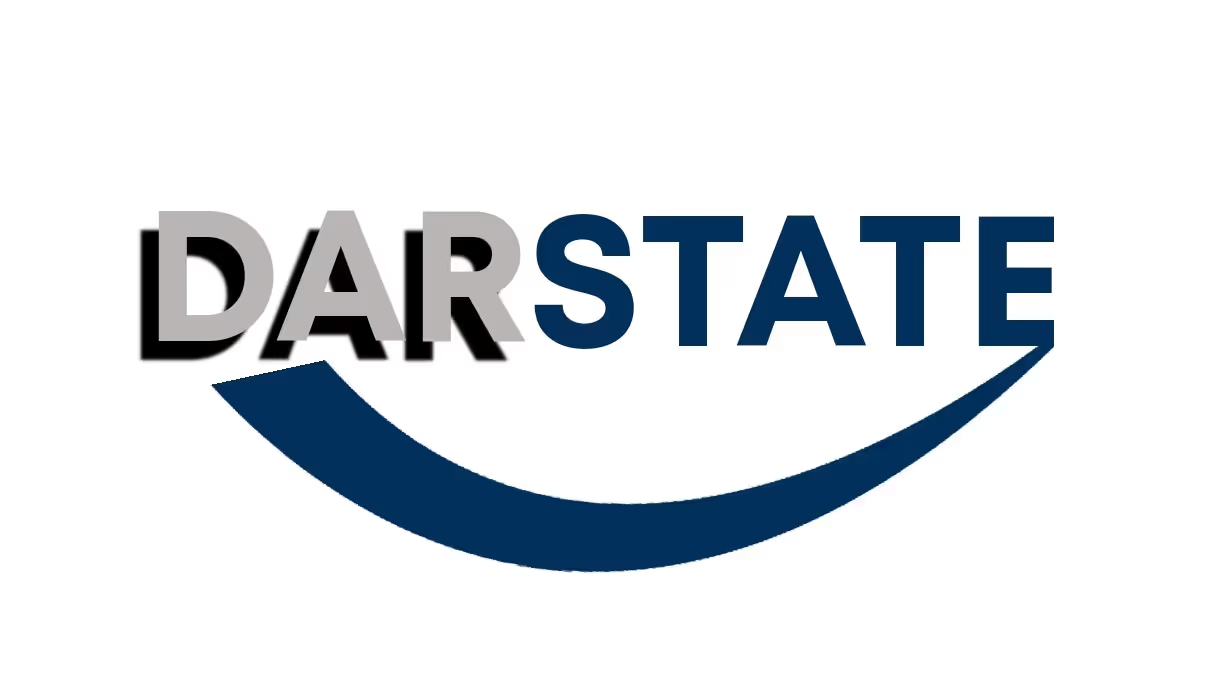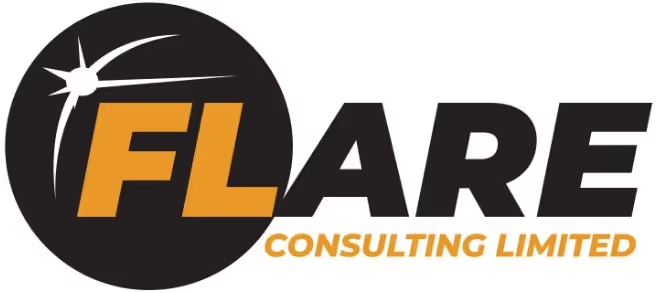Top-Rated Debt Collection Agency in Tanzania
Your trusted Debt Collection Agency in Tanzania ensures rapid, risk-free recovery. No upfront fees; explore our detailed guide for an insight into local debt practices.






The ultimate guide about debt collection in Tanzania
Why you can trust this guide
At Debitura, we uphold the highest standards of impartiality and precision to bring you comprehensive guides on international debt collection. Our editorial team boasts over a decade of specialized experience in this domain.
Questions or feedback? Email us at contact@debitura.com — we update this guide based on your input.
Debitura By the Numbers:
- 10+ years focused on international debt collection
- 100+ local attorneys in our partner network
- $100M+ recovered for clients in the last 18 months
- 4.9/5 average rating from 621 reviews
Expert-led, locally validated
Written by Robin Tam (16 years in global B2B debt recovery). Every page is reviewed by top local attorneys to ensure legal accuracy and practical steps you can use.
Contributing local experts:
Last updated:
Unravel the intricacies of debt collection in Tanzania with this ultimate guide. Partner with Debitura, your stalwart local ally with extensive global expertise, in simplifying debt recovery. Be effectively prepared to tackle any debt related challenges in Tanzania.
Unpacking The Key Roles in Debt Recovery in Tanzania
In the complex domain of Tanzanian debt recovery, it's essential to comprehend the distinct roles and duties of various significant players. This includes debt collection agencies, bailiffs, and debt collection lawyers, all performing key parts within a strict legal framework to ensure proficient debt recovery.
Debt Collection Agencies in Tanzania
In Tanzania, debt collection agencies play a pivotal role in the financial ecosystem, acting as intermediaries that aid creditors in recovering debts from non-compliant debtors. Engaging such agencies typically occurs when direct attempts from creditors to reclaim their dues have been unsuccessful, signaling a need for specialized intervention. These agencies employ a variety of techniques, ranging from negotiation strategies and persuasive communication to more stringent legal notices, operating within the boundaries set by Tanzanian debt collection laws and regulations. Despite their robust methodologies, there are clear limitations to their abilities. For instance, while they can negotiate and demand payment, they cannot exercise powers reserved for the judiciary, such as property seizure, without a court order. Agencies like the Deposit Insurance Board (DIB) not only emphasize the significance of these services in maintaining the flow of credit in the economy but also underscore the intricate balance between effective debt recovery and adherence to legal standards.
Lawyers in Tanzania
In Tanzania, the role of lawyers in the debt recovery process is pivotal, especially when it becomes necessary to escalate matters legally. These legal professionals are instrumental in guiding creditors through the complexities of judicial proceedings essential for debt collection. By leveraging their deep understanding of Tanzanian law and debt recovery statutes, lawyers take on tasks such as drafting and filing pertinent legal documents, offering legal counsel, and, crucially, representing creditors in court. A creditor might seek the involvement of a lawyer once amicable collection efforts fail, or if the debt dispute escalates to a level where judicial intervention is inevitable. Lawyers thus serve as a vital link in safeguarding the interests of creditors and ensuring that legal proceedings are navigated successfully to recover owed debts.
The Role of Bailiffs in Tanzania
In Tanzania, bailiffs function as fundamental enforcers within the realm of debt recovery, ensuring compliance with judicial rulings through physical enforcement and property seizure. These legal professionals are endowed with the authority to engage in the confiscation of movable assets, barring those necessary for the debtor's daily life or business operations, to satisfy creditor's claims . The involvement of a bailiff is vital when a debtor neglects to heed a court order, propelling the debt collection process towards tangible enforcement measures. It is imperative for creditors to secure a court judgment as a precursor to engaging a bailiff's services.
The vast scope of a bailiff's responsibilities encompasses the retrieval of movable property, an endeavor that may span from a few to several months, reflecting the complexity and efficiency of the Tanzanian legal ecosystem in debt enforcement instances. Importantly, before deploying bailiffs, creditors need meticulously detailed information including but not limited to bank account specifics and details about the debtor's employment and assets, underscoring the necessity for a judicial directive to proceed with enforcement actions .
Understanding Tanzanian Debt Collection Legislation
In Tanzania, comprehending the multifaceted legal format is a vital step towards effective debt recovery. Adherence to these laws not only enhances recoverability but also strengthens the principles of fairness and integrity, thus fostering trust in business transactions.
The Regulatory Environment and Civil Court System in Tanzania
The Tanzanian civil court system is structured to effectively manage and adjudicate civil disputes, including debt recovery processes. This system is pivotal to the enforcement of contractual obligations and the settlement of civil cases.
- Primary Courts: The foundation of Tanzania's judicial system, Primary Courts handle a wide range of civil cases, including small claims and minor disputes.
- District and Resident Magistrate Courts: One step above Primary Courts, these courts deal with more substantial civil disputes. Their jurisdiction often includes larger monetary claims and more complex cases than those addressed by Primary Courts.
- High Court: At the apex of the civil court hierarchy, the High Court of Tanzania has extensive jurisdiction over all civil matters, including significant debt collection cases. The High Court is divided into divisions, such as Land, Commercial, and Labour divisions, to handle specialized cases efficiently.
In conclusion, Tanzania's civil court system provides a structured and hierarchical approach to resolving civil disputes, including those related to debt collection. Understanding the capabilities and jurisdiction of each court level is essential for parties involved in civil litigation within the country.
Key Legislation Impacting Debt Collection in Tanzania
In Tanzania, debt collection is governed by a framework of laws ensuring creditor protection while respecting debtor rights. This legal regulation strikes a balance crucial for a healthy financial ecosystem.
- Banking and Financial Institutions Act of 2006: This act oversees the insolvency process managed by institutions like the Deposit Insurance Board (DIB), which facilitates debt recovery among insolvent banks.
- Companies Act of 2002: It lays down the procedures for winding up companies and includes provisions on how unpaid debts are to be handled during liquidation.
- Debt Collection Procedure Rules of 2022: Tailored specifically for small claims, these rules streamline the debt collection process and ensure expedited resolution while upholding fundamental rights.
Understanding these regulations is paramount for engaging in debt collection activities in Tanzania, be it as a creditor, debtor, or agency. This legal foundation offers a structured pathway for debt recovery, ensuring fairness and transparency in financial dealings.
Consumer Protection from Unfair Collection Practices in Tanzania
In Tanzania, safeguarding consumers during the debt collection process is crucial to ensure fair practices and maintain individual rights. The legal framework seeks to balance the interests of creditors and protect debtors from abusive practices.
- The Banking and Financial Institutions Act of 2006 governs the insolvency process, protecting consumer deposits during bank insolvency scenarios, as seen with the Deposit Insurance Board's (DIB) management.
- Debt collection cases are considered civil matters, ensuring that the debtor's legal obligations are addressed through the judiciary system rather than criminal proceedings, to safeguard the debtor's rights.
- The involvement of police in debt collection is discouraged, emphasizing the importance of legal channels for debt recovery and protecting consumers from undue pressure.
- Through the Debt Collection Procedure Rules of 2022, small claims court processes are streamlined, highlighting the importance of equitable and expedient resolution while upholding debtor's fundamental rights.
- The Judiciary Service Commission oversees judiciary employees, ensuring ethical conduct in handling disputes, thereby safeguarding consumer rights during judicial processes.
To conclude, the Tanzanian legal system offers a framework designed to protect consumers during debt collection efforts. Key legislation and regulatory bodies, notably in the banking sector, emphasize consumer rights, fair practice, and the importance of resolving disputes through appropriate legal mechanisms. This consumer-centric approach seeks to foster a balance between the efficient recovery of debts and the protection of debtors’ rights.
Amicable Debt Collection in Tanzania
This section serves as your gateway to comprehending the practice of amicable, or pre-legal, debt collection in Tanzania. Keen to avoid complex court processes, businesses often entrust such tasks to agencies. This process is outlined here, providing tools and strategies to streamline your debt management.
- Legal Framework and Court Structure: Embedded in the 1977 Constitution, includes lower courts up to the Court of Appeal.
- Specialized Debt Collection Agencies: Institutions like the Deposit Insurance Board emphasize regulatory methods for debt recovery.
- Insolvency and Liquidation: DIB's role in liquidating banks and prioritizing creditor payments illustrates formal recovery mechanisms.
- Asset Sales and Funds Allocation: Structured processes for maximizing creditor repayments through auctions and fund investments.
- Statute of Limitations: Debt recovery efforts are time-bound under Tanzanian law, necessitating timely collection actions.
- Fees and Interest Rates: Collection efforts can include accumulated interest and collection costs, adhering to contract terms or regulated caps.
- Essential Documentation: Comprehensive documentation is critical, as failure to present necessary documents can undermine the creditor’s position.
- Amicable Recovery Versus Judicial Recovery: Initial attempts at amicable recovery recommended, with judicial recovery as a last resort.
- Cost of Amicable Debt Recovery: Costs can vary, influenced by complexity and adopted methods (e.g., negotiation, mediation).
- Timeline and Efficacy: Effective debt recovery outside court may require patience due to thorough processes involved.
Navigating Amicable Debt Collection in Tanzania
In Tanzania, amicable debt collection hinges on a relationship-focused strategy, favoring empathy and mutual negotiation over more confrontational approaches. This method cherishes the maintenance of a positive relationship between creditors and debtors, aiming for resolutions that respect the financial state of the debtor while enabling the creditor to recover outstanding funds. It represents a non-adversarial route best suited for claims that are clear-cut and undisputed, offering an alternative to the potentially intricate and costly legal proceedings.
When navigating the amicable collection landscape in Tanzania, starting with this softer approach is advised, unless your claim is entangled in disputes or necessitates a deeper legal analysis.
The Pivotal Role of Collection Agencies in Tanzania's Amicable Debt Recovery
Collection agencies play a crucial role in the amicable debt recovery process in Tanzania, bridging the gap for creditors who may lack the time or expertise to undertake effective debt collection themselves. Agencies such as Debitura, backed by 10 years of experience in the Tanzanian market, offer specialized services that commence with the accurate identification of debts and debtors, followed by establishing communication through reminders or formal notices. Their neutral perspective, unblemished by personal stakes, often paves the way for successful debt recovery by providing impartial, professional mediation support.
Perceived Benefits of Amicable Debt Resolution
Choosing amicable collection harbors mutual benefits; creditors can circumvent the expenses associated with legal proceedings while preserving invaluable business relationships, thanks to the process's respectful disposition. For debtors, it presents more adaptable repayment terms, mitigating financial distress and fostering a positive disposition towards the creditor. This approach underscoreds the importance of respect and comprehension, cultivating an environment conducive for fulfilling financial obligations.
Transitioning from Amicable to Judicial Collection in Tanzania
While amicable collection is laden with benefits, certain circumstances may compel a shift towards legal actions. Indications that legal collection might be necessary include the debtor's unresponsiveness, habitual defaults on agreed payments, or instances of deliberate avoidance. Opting for legal action should be a thoroughly contemplated move, acknowledged for the significant expenses and time that legal proceedings demand, and is generally considered after all amicable avenues have been explored.
In the Tanzanian jurisdiction, notable for its dual legal system across the mainland and Zanzibar, and its structured hierarchical court system, understanding when and how to transition from amicable attempts to legal pursuits becomes crucial. The Tanzanian court system efficiently categorizes disputes across various levels - from District Courts to the Court of Appeal, with specialized divisions such as the Commercial High Court Division, ensuring targeted and competent handling of commercial disputes, including debt recovery.
Legal Debt Collection in Tanzania
If amicable claim recovery methods falter, it's time to navigate towards legal debt collection in Tanzania. This generally involves obtaining a court order via the legal system and might require assistance of bailiffs. Let's demystify this complex process in the sections that follow.
- Hierarchical Court System: Tanzania features a tiered court system covering both the mainland and Zanzibar, with the Court of Appeal at the top.
- Legal Framework for Debt Recovery: The system includes specialized agencies like the Deposit Insurance Board (DIB) for handling bank insolvencies.
- Jurisdiction and Court Selection: Careful selection of the appropriate court based on monetary and subject matter jurisdiction is crucial for debt recovery.
- Small Claims Procedures: Rules established for small claims emphasize fast, simplistic, and cost-effective resolution.
- DIB's Role in Debt Recovery: Specialized agencies like the DIB play key roles, especially in banking sector debt recovery.
- Legal Proceedings for Unpaid Debts: A civil litigation process is in place for creditors to legally enforce debt repayments through court orders.
- Court Fees and Legal Obligations: Creditors must observe necessary court fees and legal obligations, including the potentiality for debtor asset seizure.
- Police Involvement: Debt collection is judicial with no legal mandate for police involvement, emphasizing the civil nature of debt recovery.
- Appeals and Further Legal Steps: The system allows for appeal processes, offering further review to ensure justice in debt recovery cases.
- Access to Legal Resources: Tanzania emphasizes the importance of legal support and resources, ensuring informed and effective navigation of the debt recovery process.
Shifting from Amicable to Judicial Debt Collection in Tanzania
Debt collection in Tanzania can be categorized into two main processes: amicable and judicial debt collection. Amicable debt collection involves negotiation and voluntary agreement between the creditor and debtor for the settlement of outstanding debts without resorting to formal legal procedures. When such efforts fail, typically due to disputes or the debtor's refusal to comply with the repayment agreement, the situation escalates to judicial debt collection.
Transitioning from amicable to judicial methods necessitates understanding the legal landscape of Tanzania, highlighting the imperative need for legal counsel or representation. This step is crucial for navigating the judicial system effectively to recover debts through legal mechanisms. Knowledge of Tanzania's court structure and debt collection laws becomes paramount in such cases.
The Importance of a Formal Judgment in Tanzania
A court order, in the context of debt recovery in Tanzania, serves as the legal foundation for enforcing debt payment from a debtor. To obtain a court order for unpaid debt, creditors must initiate a debt collection case by filing a lawsuit against the debtor. This process ensures that a legal examination of the claims occurs, allowing for an impartial decision by the court.
Having a court order is vital as it provides the legal authority to enforce the claim through various mechanisms, such as property seizure or garnishment of wages, depending on the court's judgment. To navigate this process, one must understand the procedure to file for and obtain a court order, which involves presenting sufficient evidence of the debt owed and fulfilling legal requirements as outlined by the Tanzanian judicial system.
Determining the Appropriate Court in Tanzania
In Tanzania, the determination of which court will handle a debt collection case depends on several criteria, primarily the size and complexity of the claim. The Tanzanian court system is hierarchically structured with different courts having jurisdiction over cases based on the monetary value and nature of the legal matters. Small claims are generally adjudicated in District Courts or Primary Courts, where simplified procedures are in place to expedite the resolution of disputes.
For larger and more complex cases, the High Court of Tanzania, with its specialized divisions such as the Commercial Division, is the appropriate forum. These divisions are specifically equipped to handle cases of significant monetary value and intricate legal issues. Knowledge of these criteria, including any thresholds or guidelines that dictate the appropriate court for each case, is crucial for ensuring that debt recovery proceedings are filed in the correct court, thereby optimizing the chances for a successful outcome.
Understanding Tanzania's legal framework for debt collection, including its court system and the specific laws governing debt recovery processes, is essential for international creditors engaging in judicial debt recovery efforts within the country. By following the detailed judicial procedures and selecting the appropriate court based on the nature of the claim, creditors can effectively navigate the complex legal landscape in Tanzania to achieve debt recovery.
Small Claims Court in Tanzania
In Tanzania, the handling of small claims, distinct from large-scale disputes, is streamlined through the Debt Collection Procedure Rules of 2022. This judicial mechanism is intentionally designed for efficiency and simplicity, excluding claims against the government or those entangled in specific legal predicaments such as land disputes. The system lays out procedures for initiating claims, responding, conducting hearings, rendering judgments, and ensuring the enforcement of awards. It emphasizes the vital role of timely documentation submission and mandatory court attendance, providing a framework that aims to resolve disputes swiftly while safeguarding fundamental rights. These rules clarify the methods for filing requirements, claim rejections, and the encouragement of settlement through agreements. The process champions oral applications to the court, except when written submissions are deemed necessary, embodied through specified forms for initiating and responding to small claims. It underscores the importance of honesty and the provision of accurate information in legal documents, asserting the principles of justice and the rule of law. Through this framework, Tanzania establishes a judicial avenue that balances expediency with fairness, effectively addressing small claims.
Ordinary Proceedings in Tanzania
In Tanzania, ordinary proceedings are the standard legal process for resolving disputes that exceed the financial or complexity limits of small claims courts. Offering a more formal and extensive approach, ordinary proceedings allow for greater depth in case examination, including the presentation and cross-examination of evidence. One significant advantage over small claims is the capacity to handle higher-value cases and more complex legal issues, catering to both corporations and individuals seeking justice.
Unlike small claims proceedings, ordinary proceedings often require legal representation. This requirement ensures that all parties have access to professional advice and are properly represented, which is particularly beneficial in complex cases where legal nuances play a critical role. The laws and regulations governing these proceedings are structured under the Tanzanian legal framework, which includes the Civil Procedure Code and various acts specific to the type of case being dealt with. These laws ensure that proceedings are conducted in a fair, consistent, and efficient manner, providing a solid foundation for the adjudication of disputes in the Tanzanian judiciary system.
Executing Debt Enforcement in Tanzania
Take a deep dive into understanding how debt enforcement comes into play in Tanzania post court order. In this discussion, we unfold how official bailiffs supervise this crucial operation, enabling creditors to reclaim debt through asset seizure, offering a crucial insight for successfully navigating Tanzania's legal channels.
- Debt Enforcement in Tanzania: Involves obtaining a court order and executing it with the assistance of bailiffs to recover debts.
- Role of DIB: The Deposit Insurance Board (DIB) acts as a liquidator executing asset recovery, including debt collection, during bank insolvencies.
- Garnishment Process: Debt repayment can be enforced through garnishment of wages, requiring a court order detailed for deduction from salary.
- Legal Services and ADR: The Ministry of Constitution and Legal Affairs promotes the use of Alternative Dispute Resolution for debt conflicts.
- Legal Framework for Asset Seizure: Governed by the Ministry of Constitution and Legal Affairs, ensuring comprehensive guidance on asset recovery.
- Debtor Rights: During salary garnishment, debtors possess rights such as being informed about deductions and challenging debt validity.
- Execution Process Overview: Involves asset identification, seizure, and garnishment, ensuring creditor claims are satisfied.
- Protection of Minimal Living Standards: Tanzanian laws ensure that debtor's essential income and assets are protected while balancing creditor rights.
- Challenges in Debt Collection: DIB faces obstacles such as legal disputes and international issues, impacting the collection process.
The Crucial Role of Bailiffs
In Tanzania's legal landscape, bailiffs, also known as enforcement agents, play a pivotal role in the debt enforcement process. Their responsibilities extend beyond merely executing court orders; they are involved in the identification, seizure, and sale of a debtor's assets. This ensures the creditor's claims are satisfied in accordance with legal stipulations. The process, executed under the legal system's watchful eye, is crucial in maintaining the balance between the necessity to fulfill financial obligations and the protection of debtor's rights.
Detailed Debt Enforcement Procedure
The journey of debt enforcement in Tanzania initiates once a creditor files a claim, supported by an enforceable title, verifying the debtor’s financial obligation. This title may take the form of judicial decisions, formal agreements, among others. Post-execution, bailiffs embark on asset identification and seizure, prioritizing the satisfaction of creditor claims while concurrently safeguarding debtor rights, ensuring essential living needs are not compromised.
Understanding Costs and Regulatory Framework
Enforcement costs in Tanzania, encompassing court fees, bailiff charges, and legal representation expenses, signify a critical point of contemplation for creditors. These costs are influenced by the intricacies and length of the case. The regulatory framework delineates the debt enforcement procedures, elucidates the role of bailiffs, and highlights the rights of all parties involved - ensuring a transparent, balanced, and fair process.
Strategic Enforcement Preparation
Successful enforcement efforts commence with the creditor ensuring possession of a valid title, coupled with a final payment request directed at the debtor. This crucial phase sets the groundwork for subsequent legal endeavors, providing a window for voluntary debt settlement by the debtor. It embodies the legal ethos of respecting debtor rights, permitting objections, or the challenge of enforcement actions.
Legal and Judicial Framework on Mainland Tanzania and Zanzibar
The Tanzanian court system, fundamental to debt collection and enforcement, operates under a dual structure catering to both mainland Tanzania and Zanzibar. With the Court of Appeal serving as the apex judicial body, the hierarchy spans from District Courts up to the High Court, divided into specified divisions such as Land, Commercial, and Labor. This structure underscores the judicial system’s capacity to manage debt-related disputes systematically, assigning varying levels of claim values and legal matter specificities to appropriate courts.
Deposit Insurance Board's Role in Debt Collection
In the realm of debt collection within the banking sector, the Deposit Insurance Board (DIB) emerges as a central figure. Tasked with the insolvency process under the Banking and Financial Institutions Act of 2006, DIB's role transcends traditional debt collection, delving into asset preservation, litigation, and the sale of bank assets under liquidation. The board’s ongoing efforts in disbursing funds to depositors of insolvent banks depict a nuanced approach to debt enforcement, balancing creditor recovery with depositor protection.
The Ins and Outs of Insolvency in Tanzania: A Creditor's Guide
When debtors fail to settle their dues, creditors may experience significant financial loss. Often, they resort to traditional methods such as court-ordered asset seizure, but find them ineffective in cases of debtor insolvency. This scenario necessitates an understanding of bankruptcy proceedings in Tanzania. These legal processes offer a structured means of liquidating the debtor's assets - a last-ditch effort to recover the remaining debt.
- Legal Framework: Governed by the Banking and Financial Institutions Act of 2006 for banks’ insolvency.
- Deposit Insurance Board Role: Handles the insolvency proceedings of banks, including asset collection and creditor payment.
- Asset Recovery: DIB focuses on recovering funds from borrowers, employing collectors, and initiating legal action against non-payers.
- Asset Sale Process: Involves auctioning assets, collecting from various sources, and investing in government securities for creditor fund preservation.
- Creditor Payment: Payments to depositors and creditors of insolvent banks continue, with varying distribution rates based on available funds.
- Filing Requirement Emphasis: Stresses on poor debt repayment culture and the need for financial education for the debtor groups.
- Court Structure consideration: The Court System in Tanzania comprises various levels, including High Courts with Commercial Divisions for handling insolvency cases.
- Recovery Challenges: High cases and objections against insolvency administrators highlight the complex legal environment.
The Framework of Insolvency Procedures in Tanzania
In Tanzania, insolvency procedures serve as a crucial recourse for entities facing financial distress, providing them with avenues for either restructuring their obligations or liquidating assets to settle creditor claims. Governed by comprehensive legislation, including the Banking and Financial Institutions Act of 2006, these procedures detail the protocol for declaring insolvency, roles and responsibilities of parties involved, and guidelines for asset disposition. Both debtors and creditors have the leeway to initiate insolvency proceedings, with the condition precedent being the debtor's sustained inability to service their financial commitments.
Creditor Rights and Claim Prioritization in Tanzania
Creditor claims during insolvency proceedings in Tanzania are categorized and counterweighted based on predefined hierarchies ranging from secured to unsecured claims. This hierarchy significantly impacts creditors' recovery potential, underscoring the importance of claim registration within designated deadlines. By actively participating in creditor meetings and negotiating restructuring plans, creditors have the opportunity to optimize their recovery prospects.
Understanding Costs and Timelines
The financial and temporal aspects of navigating through insolvency in Tanzania are variable, encapsulating court fees, administrative expenses, and attorney charges, all deductible from the debtor's estate before creditor reimbursement. The insolvency duration is subject to the intricacies of the debtor's financial standing, claim volume, and possible litigations, potentially protracting the debt recovery timeline. Creditors should thus brace for a process that could span extensive periods, influencing the recovery timeline.
Find a Local Debt Collection Lawyer
Need court-ready representation? Share your case once and receive up to three proposals from vetted litigation attorneys—free, fast, and with no commitment.
- Verified specialists
- Quotes in 24 h, no hidden fees
- Fair, pre-negotiated rates

Hilton Law Group is a premier law firm in Dar es Salaam offering effective Debt Collection services in Tanzania, positioning itself as the go-to partner for debt recovery with a strong track record since 2015 and recognized for its awards and memberships.

CS Attorneys is a premier law firm in Dar es Salaam offering effective debt collection services in Tanzania, established in 2019, renowned for its strategic negotiation and litigation expertise, with a contingent fee model ensuring cost-effective solutions for clients.

LexActo Attorneys is a premier law firm in Dar es Salaam offering effective Debt Collection services in Tanzania, recognized for its dedication since 2019 with multiple awards and memberships, establishing itself as the trusted partner for debt recovery solutions.

SITUS ATTORNEYS AT LAW is a premier law firm in Dar es Salaam offering effective Debt Collection services in Tanzania, recognized for its membership in the ANTEA Alliance and founded in 2015, providing timely, cost-effective solutions with a success fee model.

Trill & Associates Advocates is a premier law firm in Dar es Salaam offering effective Debt Collection services in Tanzania, established in 2015, and recognized for its membership in the Tanganyika Law Society and East Africa Law Society.

Legal Worthy Attorneys is a premier law firm in Dar es Salaam offering effective Debt Collection services in Tanzania, established in 2014, known for its client-centric approach, strategic thinking, and memberships in the Tanganyika Law Society and East Africa Law Society.

MDM Law Group is a premier law firm in Dar es Salaam offering effective Debt Collection services in Tanzania, established in 2018, and recognized for its membership in the Tanganyika Law Society, East Africa Law Society, and African Arbitration Association.

AI AND PEG ADVOCATES is a premier law firm in Mwanza offering effective Debt Collection services in Tanzania, positioning itself as the go-to partner for debt recovery since 2014, with memberships in the Tanganyika Law Society and operations in Uganda and Kenya.

DARSTATE COMPANY LIMITED is a premier debt recovery agency in Tanzania offering effective risk-free Debt Collection services, established in 2022 and serving both Tanzania and Kenya, as the exclusive Debitura partner in Tanzania with a No Cure No Pay model based on Debitura’s risk-free standard terms and pricing.

Maxiserve Attorneys is a premier law firm in Dar es Salaam offering effective Debt Collection services in Tanzania, positioning itself as the go-to partner for debt recovery since 2019, backed by memberships with Thomson Reuters and the Tanganyika Law Society.

FLARE CONSULTING LIMITED is a premier debt recovery agency in Dar es Salaam offering effective debt collection services in Tanzania, founded in 2019, known for its strategic processes and integrity, serving clients across Tanzania, Kenya, and Uganda, and a member of Expert Planet.

Xclusive Consult is a premier law firm in Dodoma offering effective Debt Collection services in Tanzania, positioning the firm as the go-to partner for debt recovery with memberships in the Tanganyika and East Africa Law Societies since its founding in 2018.

Rive & Co is a premier law firm in Dar es Salaam offering effective Debt Collection services in Tanzania, established in 2012 and recognized as a 1st Runner-up for Law Firm of the Year, with memberships in Alliott Global Alliance and East Africa Law Society.

Miles Law Attorneys is a premier law firm in Kisutu, Ilala, Dar es Salaam, offering effective Debt Collection services in Tanzania, established in 2015, known for cost-effective solutions and a member of the Tanganyika and East Africa Law Societies.





.svg)

.webp)
.png)

.png)
.svg)












.svg)

